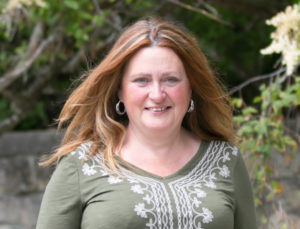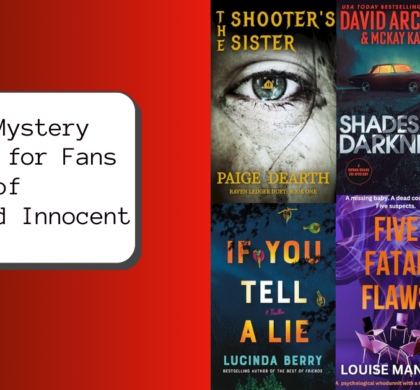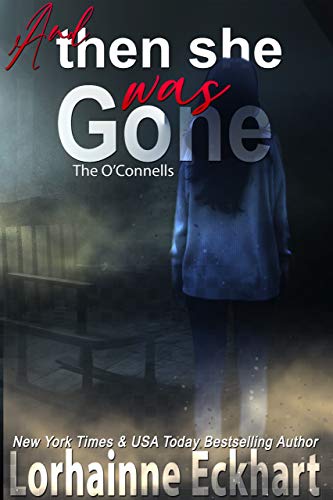Guest Post from Lorhainne Eckhart, Author of And Then She Was Gone
15 Dec 2020
By Lorhainne Eckhart
“I’m more important than you.”
How many times, especially as of late, have you felt as if someone else was more important than you, as if you just didn’t matter? Whatever the situation, have you ever noticed someone giving preferential treatment to others? It’s not a good feeling, let me tell you. Rightfully so, it creates strong emotions of anger and resentment. I’m not sure these instances have ever had such a spotlight on them as they do right now. People are actually willing to admit that bias has happened for a long time and is still happening quite blatantly in some communities.
The thing about this pandemic is that it brings out the worst and the best in people.
I remember a situation from back in the early eighties, when I was attending business school. This school was for women—because only women, not men, worked as secretaries. Anyway, in my last class before graduating, the last month was one of tedious work. My classmate was a young woman I knew well. Her father owned many businesses, had money, and was quite prominent in the business community, whereas the rest of the students were from the poorer side of town. Because of that, the owner of the business school, an older woman—yes, a woman—gave her a pass and let her miss the last month of tedious work. The owner actually stated this clearly: She didn’t have to finish because of who her father was, but we did, because we didn’t come from that kind of family.
Now, this was a really long time ago, but it shaped my perspective of how the world works, with different classes of people who have different rights and for whom different laws are enforced. I think most people are of the mind that this kind of bias isn’t okay, because it really builds and enforces an “us versus them” mentality. To be clear, the girl in question was a nice girl, but she didn’t understand that there was anything wrong with what had happened. How many times has this happened to you in the past? Even now, with the pandemic and the restrictions in place, we see those restrictions enforced for some and not for others. We’re seeing some communities come together while others are divided.
Over the past few months, the subject of transparency has come up over and over—or, more specifically, a lack of transparency. These types of issues have gone on forever. Just this past week, my family heard that someone at my daughter’s school had received a positive COVID test. We don’t know the details, because the information came to us from the news, which brought an entirely different outrage, as we should have heard from the school first. That lack of transparency had us questioning a lot of things. My daughter decided, even before the school notified everyone, that she was staying home that day, and then she promptly sent off an email to the administrator questioning the rampant rumors, some of which were pretty wild.
His response convinced her she’d made the right choice in staying home, because he simply said the school would be addressing the matter shortly. They did so in a vague letter the following day that indicated contract tracing had been completed and all those affected had been notified. The letter didn’t address any other facts of the situation. Now, no one needs to know any personal details, such as who tested positive, because that would create a witch hunt. But the reality is that a witch hunt is already happening on social media, where adults are condemning kids with nasty remarks even though it was a school staff member who works at the school and transmitted it to two students.
The problem is that questions aren’t being answered. How many people could be affected? We don’t need names, but we do need to know if the infected student and staff member travelled, if there could be any other hot spots. Who is being infected? Racial minorities, the homeless, the elderly, front line minimum wage workers, the poor? If you’re exposed and you receive that call, it means you can’t work. Depending on where you work, there’s no pay for that situation. For example, my daughter is in high school, but she also works at a restaurant. She really loves her job, and she can’t take the chance of exposing herself by going to school, then either spreading it or being put in quarantine, because the bulk of the restaurant’s customers are elderly. This would affect our entire household, including her two brothers and their jobs. She decided she can’t jeopardize her job, so the wiser choice is to stay home from school and take her classes online for now. The lack of answers and transparency from the school is creating way too much uncertainty, and she doesn’t want a community that is already outraged directing any anger towards her.
What’s happening is creating that “us versus them” mentality I mentioned earlier. While this pandemic is hard on adults, it’s worse for kids, who were never meant to be isolated. Though we want compassion and for our communities to come together, when an incident like this one incites fear because of a lack of transparency, we see either the best or the absolute worst in people.

Lorhainne Eckhart is the author of the new book And Then She Was Gone.
Connect with Lorhainne:
Author Page
Twitter
Buy The Book
Sign up for our email and we’ll send you the best new books in your favorite genres weekly.
Related
grant
Recommended Posts

New Mystery Novels for Fans of Presumed Innocent
26 Jul 2024 - Books to Read if You Like..., eBook, Mystery, News, Thriller

New Romance Novels to Steal Your Heart
26 Jul 2024 - Books to Read if You Like..., eBook, News, Romance

